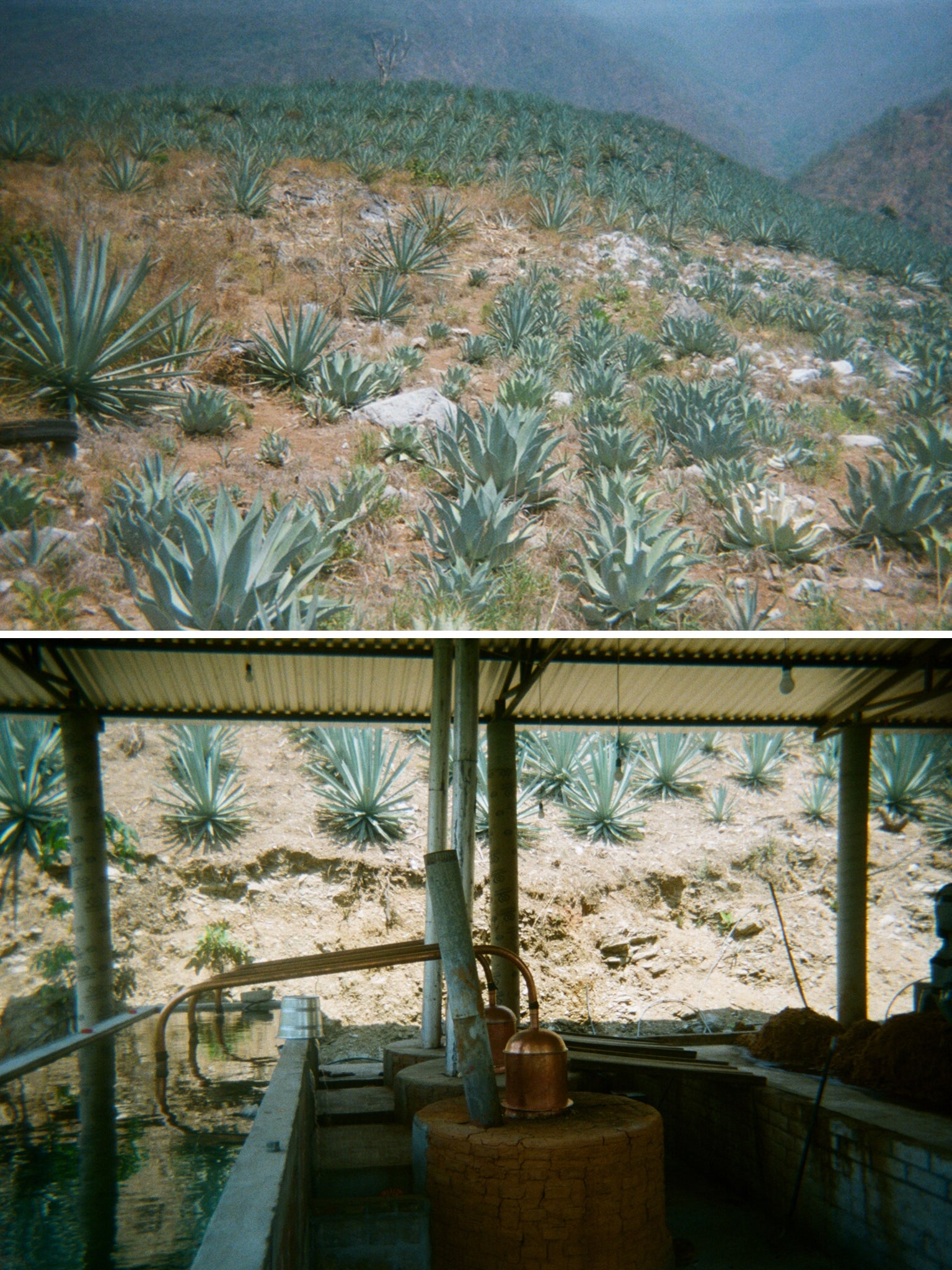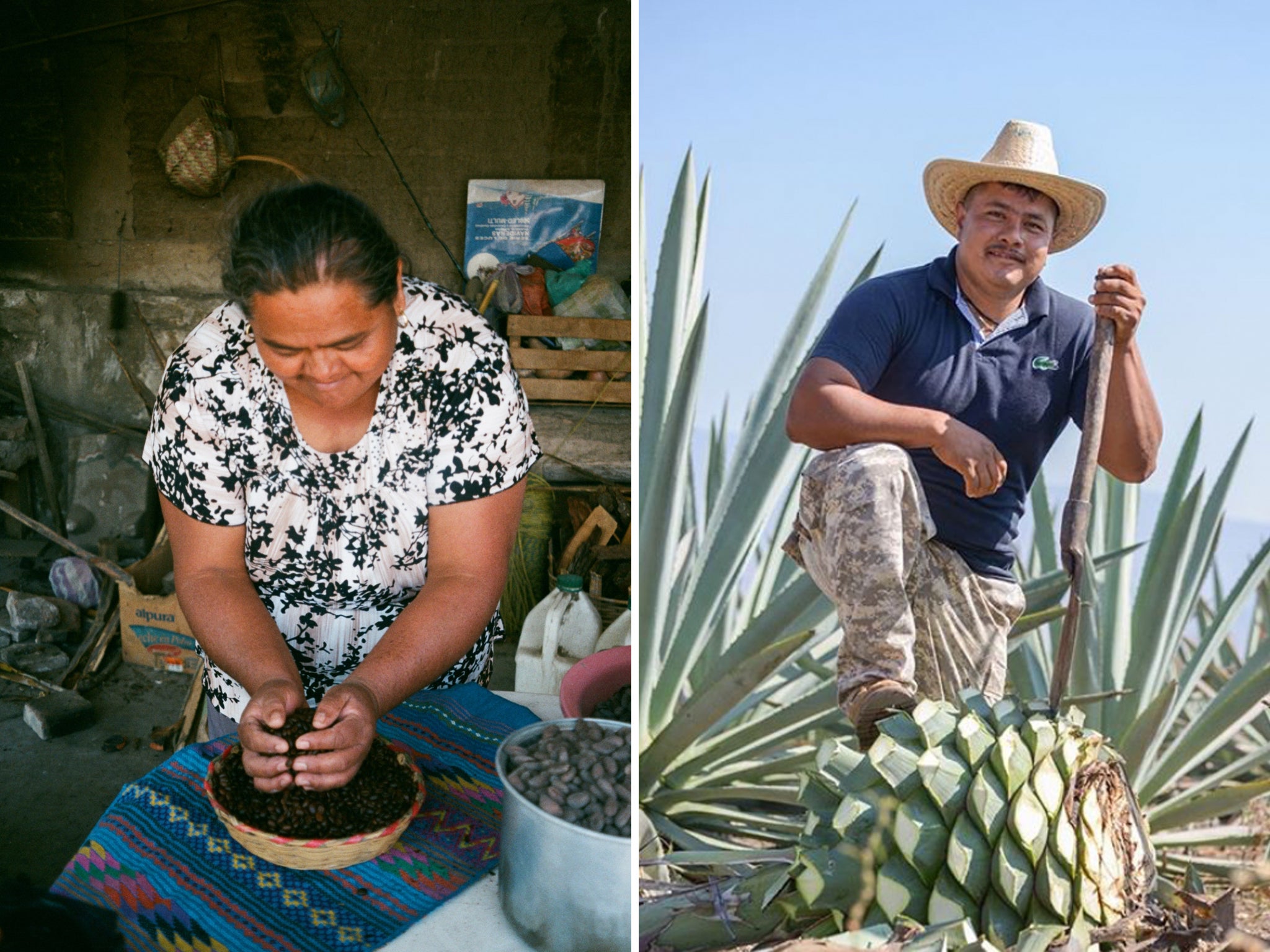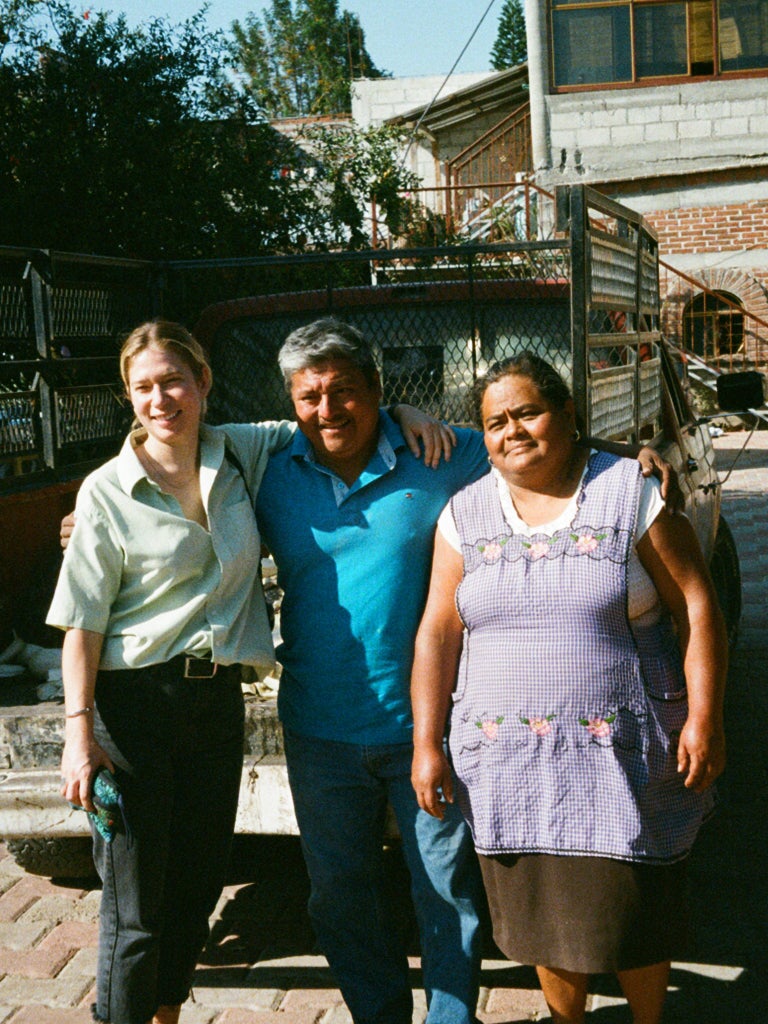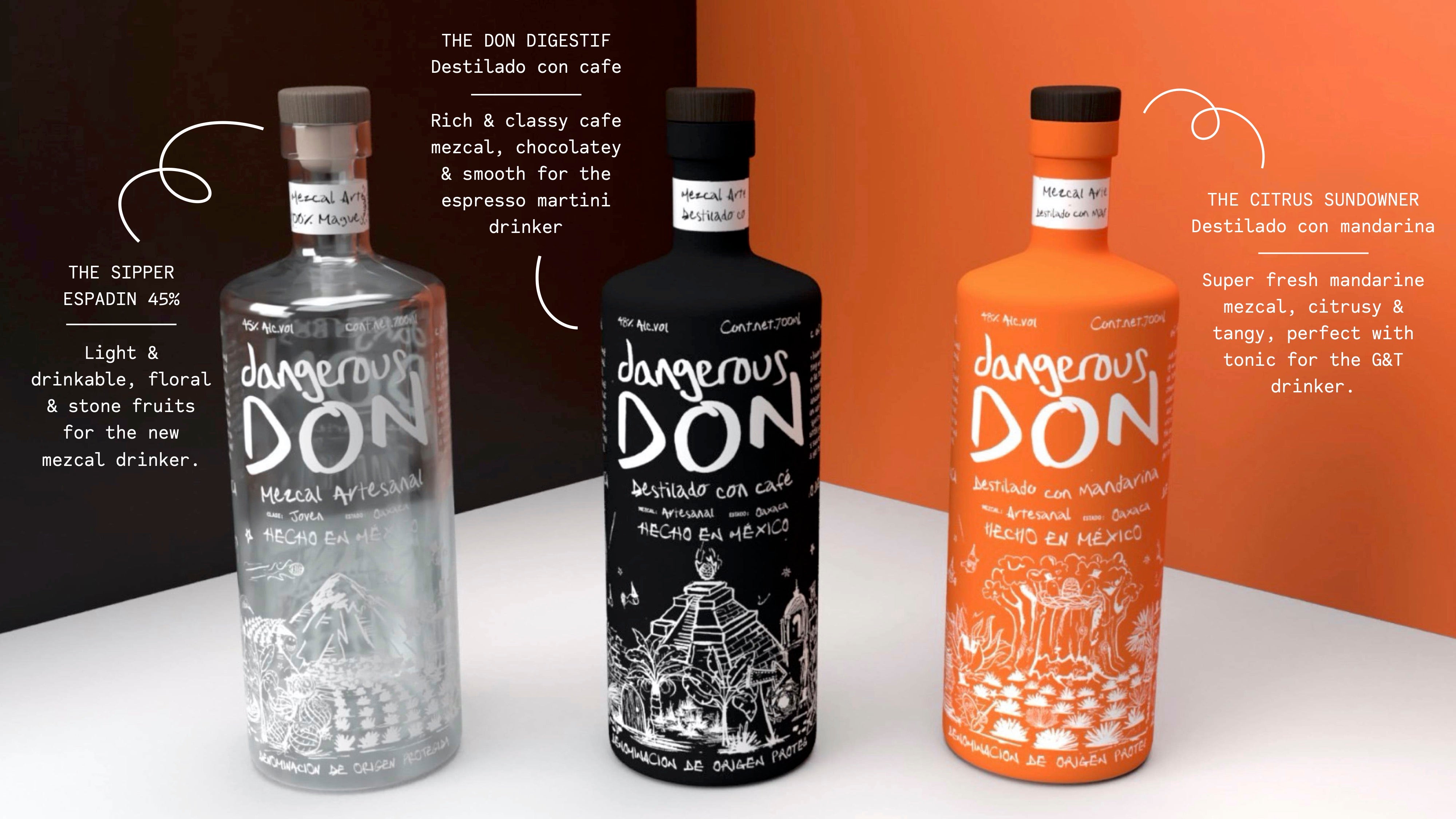The woman introducing authentic Mexican mezcal to the UK
You’ll find no shortage of tequila in the optics of Britain’s bars, pubs and restaurants, but you might struggle to find its smokier, richer sibling, mezcal. Molly Codyre meets Thea Cumming, who’s on a mission to change that


It was a chance recommendation from a friend that sent Thea Cumming to Puerto Escondido in Mexico. While travelling through the US visiting bourbon distilleries, she was told to visit the small Oaxacan town. Here, she was introduced to mezcal – sparking up a conversation with the next door neighbour who happened to be making his own coffee iteration of the spirit.
Mezcal is very similar to tequila. Both are made from the agave plant, although the process in which they are distilled differs. Tequila is traditionally distilled in copper pots, whereas mezcal undergoes its ageing process in wooden tinas (vats). The key difference, however, is that while tequila has found great international success and is one of Mexico’s biggest exports, mezcal has remained largely under the radar overseas, despite being hugely popular domestically. This chance encounter in a town she may never have visited with a man she probably never would have met set Cumming on a journey to introduce Britons to mezcal.

On returning to the UK, Cumming worked in a bakery to save up the cash to head back to Mexico and hopefully start getting stuck into the business of mezcal distilling. “It was a mixture of being fairly relentless, and luck,” she says. “I literally googled ‘mezcal tours of Oaxaca’ and was fortunate enough to come across a site called Mezcal Educational Tours, which was set up by a Canadian called Alvin Starkman, who had been living in Oaxaca for many years.” It was a recommendation from Starkman that set Cumming up with producer Don Celso Martinez, and Dangerous Don began to come into fruition.
The name, surprisingly, doesn’t come from Martinez, but rather Cumming’s father. The nickname stemmed from a drunken night out with friends and stuck, so it only seemed fitting that it became the moniker for Cumming’s alcoholic business endeavour. “My dad likes a drink and we have been brought up in a drinking family, so I suppose his interest in good spirits was an early influence on me,” she says: “I didn’t want any of the story or the brand to be a lie – no serpents, pirates or mystical characters.”

When I ask about hurdles that she will have inevitably faced trying to get the business off the ground, Cumming says: “I think the UK drinks industry is one of the hardest to break into.” She talks about her overwhelmingly positive experience in Mexico, where the producers and craftsmen and women were completely supportive, despite her position as a foreigner and her gender. Problems, however, arose in the UK. “I had a friend help me with some PR for the launch of the first batch and there was one piece which was titled ‘World’s first coffee mezcal’,” she says.

“There is a Facebook group which is for agave here in the UK. Someone posted the article and made some fairly damning comments saying that I didn’t know what I was talking about as obviously it was not the first coffee mezcal. Of course you can’t control what is written – I was never claiming to be the world’s first – but it was certainly something new that had not been sold in the UK before. I messaged them openly in the group and said that I would love to chat to them about it. They then apologised, once they realised I wasn’t full of s**t, and soon changed their view.” I ask if this is to do with her gender, something she expresses scepticism over, although she does add that “really it shouldn’t matter who owns the brand as long as they are trying to do what is right for the industry and doing their best to support the producers and craftsmen/women who have worked for generations to produce a wonderful product”.
We work to represent the producers and the product they make. We see the evolution of the brand as a partnership with the people we work with and throughout the supply chain
As tequila has become increasingly globalised, there have inevitably been people capitalising on the product’s success, producing their own tequila brands with little respect for the historical importance of the spirit or the communities that make it. Recent high-profile celebrity launches, such as Kendall Jenner with 818 Tequila, have further elevated this conversation. So how is Cumming, and Dangerous Don, any different? “We work to represent the producers and the product they make,” says Cumming. “We see the evolution of the brand as a partnership with the people we work with and throughout the supply chain.” While Cumming may be the driving force behind Dangerous Don, her intention is never to insert herself into the narrative of mezcal production. Rather, the company aims to celebrate those who produce the spirit in Mexico, and increase appreciation and understanding of it within the UK.
Perception and knowledge of mezcal has changed hugely in the five years since Cumming started working on Dangerous Don. “Most bars will now have a small selection of mezcals, whereas a few years ago you would only find a bottle of Quiquiriqui in some of the more interesting bars, and usually always in major cities,” says Cumming. She explains that mezcal is like wine, with it’s innumerable variations, methods, growers and producers. She encourages those new to the spirit to try it neat first, and experiment with different types to find the one that you like – much as you would with a wine. This allows you to understand the nuances within the spirit, and the ways in which it can develop in both flavour palette and texture.

By the end of 2020, ecommerce platform Drizly had seen a 600 per cent increase in mezcal sales year on year. The newly opened Tacos el Pastor in Soho (the company’s third outpost in London) has a specially curated mezcal menu. Events such as London Mezcal Week – brainchild of Melanie Symonds, founder of Quiquiriqui mezcal and close mentor of Cumming – are helping to raise the knowledge and understanding of the spirit in the UK.
There has arguably never been a better time to get into the spirit, thanks, in part, to the hard work of entrepreneurs such as Cumming and Symonds. “Over the past five years since I started, I’ve witnessed a change in availability, but mostly a change in knowledge and understanding,” she says. “We are obviously light years apart in our understanding and consumption here (in the UK) but we have some wonderful people leading the way and trying to educate on the process and the spirit itself. Don’t drink the big industrial brands just because they are cheap, because this is adding to the sustainability issues surrounding mezcal. Try to support the smaller brands and projects who are doing great things.”
Join our commenting forum
Join thought-provoking conversations, follow other Independent readers and see their replies
Comments
Bookmark popover
Removed from bookmarks